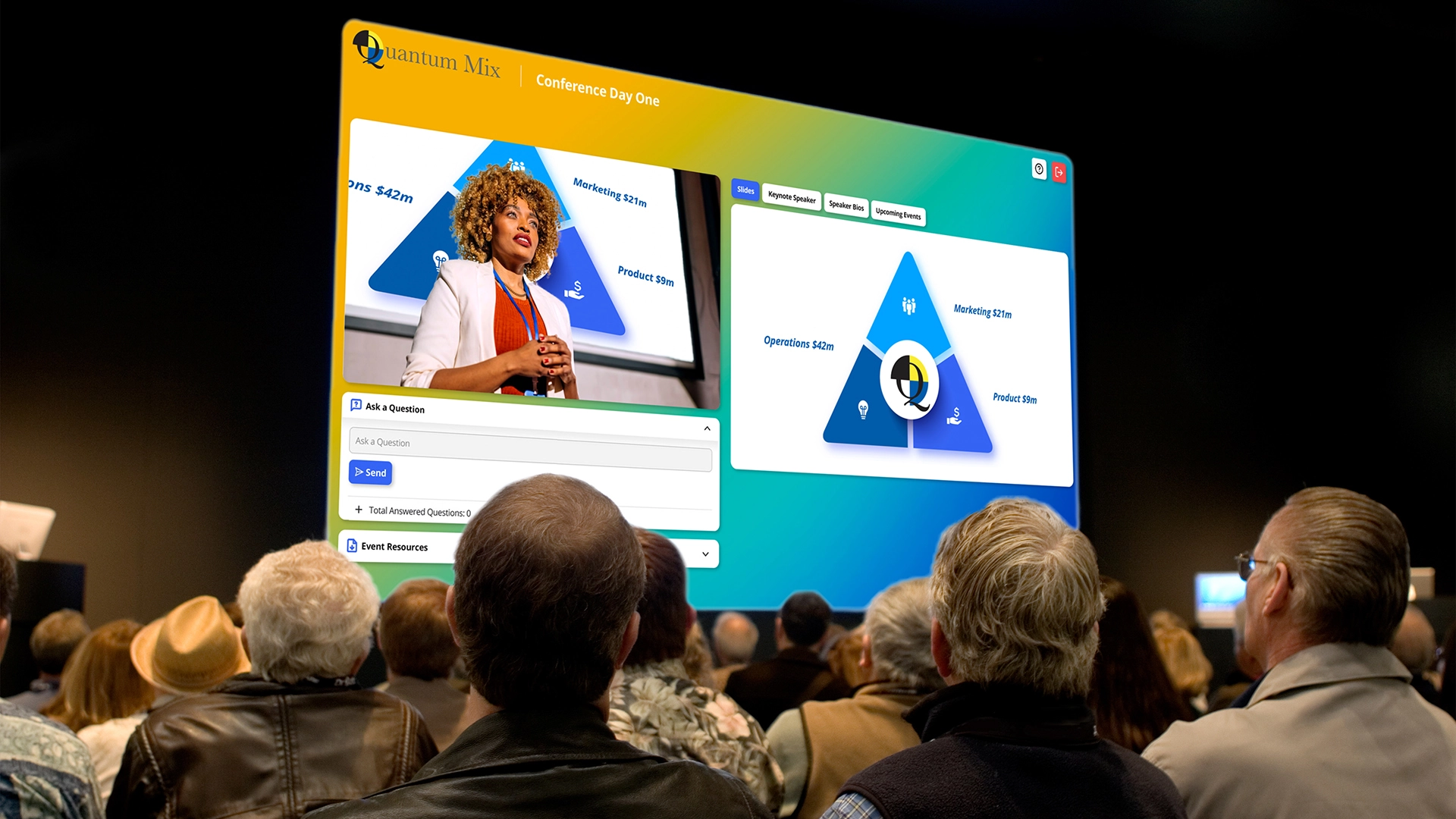
Sustainable Events Start Here
Deliver powerful, accessible events with a lighter carbon footprint.
Why Sustainability Matters
Switching to sustainable virtual or hybrid event formats slashes emissions from travel, venues, and waste. Independent studies show that hosting half of your audience virtually with a hybrid format can cut an event’s carbon footprint by up to 67%, while fully virtual formats reduce carbon impact by 94%.

Key Benefits of Virtual and Hybrid Events
Save Costs & Resources
Smaller venues, fewer flights, and less printed collateral mean more savings for your business.
Boost Revenue & Reach
Stream globally and expand your audience, with on-demand recordings for improved access with reduced overheads.
Increase Accessibility
Live captions, accessible platform designs, and flexible attendance remove physical and financial barriers.
Lower Risk and Liability
Fewer onsite attendees mean reduced liability potential for your business.
Elevate Productivity
With speakers and attendees joining remotely, jetlag and travel commitments are eliminated, making time for more important things.
A Sustainable Events Format that Works for You
Virtual Events
Great For:
- Global Product Launches
- Internal Town Halls
- Business Continuity / Disaster Recovery (BCDR) operational resiliency events
- Continuous Professional Education (CPE) events
Sustainability Win: Going virtual eliminates travel entirely, reducing carbon emissions while saving you time and money.

Hybrid Events
Great For:
- Global Product Launches
- Thought Leadership Conferences
- Investor and Customer Technical Advisory Boards
Sustainability Win: Combines ‘in the room’ energy with global accessibility, while reducing overhead and energy consumption.

Reducing Your Event Carbon Footprint
Long-Haul Travel
High Carbon Impact
Virtual or Hybrid Broadcast
Sustainable Alternative
Printed Brochures & Signage
High Carbon Impact
Interactive Agendas & QR Codes
Sustainable Alternative
Catering
High Carbon Impact
Digital Networking Opportunities
Sustainable Alternative
Lighting, Heat, and Water Use
High Carbon Impact
Scale Down Venue Size with Hybrid
Sustainable Alternative

Boost Sustainability with GlobalMeet
For over twenty five years GlobalMeet has been trusted by the fortune 500 to provide low-impact broadcast experiences with studio-grade production, secure worldwide streaming, on-demand archives, and bespoke support. Let our specialists design an event sustainability strategy to suit your business goals.

Host Sustainable Events on GlobalMeet
Ready to reduce event carbon footprints and grow your audience?







